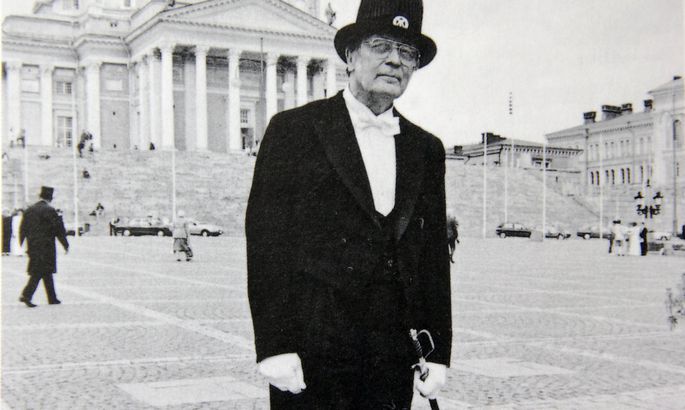The 2005 Cultural Award of the Republic of Estonia for Outstanding Lifetime Achievement was given to the grand old man of Estonian letters, Jaan Kross.
The Estonian Cultural Endowment’s major annual award went to the poet Doris Kareva for her collection The Shape of Time.
The genre awards of the Estonian Cultural Endowment’s Literature Foundation in 2005 were distributed as follows:
The 2005 prose award was not issued. Instead, two poetry prizes were awarded. One went to an active social poet of the younger generation, Jürgen Rooste, for his collection To Be a beautiful Person. The other award was also given to a poet of the younger generation, Kristiina Ehin, for the collection The Protected Zone.
The best essays were written by Madis Kõiv in his collection Falling short.
The best in drama was Merle Karusoo for her documentary project Missionaries, based on interviews with Estonian men who fought in Afghanistan in the 1980s.
Piret Raud was declared the best children’s author for her Sanna and the Poachers.
The award for translating from a foreign language into Estonian was given to Anu Saluäär for translating the Swedish writer Vilhelm Moberg’s novel The Emigrants.
Heili Einasto, Lembi Loigu, Veronika Kivisilla and Risto Järv received the award for best translation of Estonian literature into a foreign language. They translated a collection of fairy tales into English, titled Estonian Folktales. The Heavenly Wedding.
The jury also gave an award outside the genre specification, and this went to Käbi Laretei and her book of memoirs Almost Translation.
The article award went to Aare Pilv for his Political (in)correctness in new Estonia. Sketches of the changes in socio-cultural habitus during the last 15 years on the example of literature (published in the magazine Looming 2005, no 8).
The award for literature in Russian was given to two authors, Gohar Markosjan-Käsper for Cayatids and Svetlan Semenenko for his long-time fruitful work and excellent translations.
The 2005 debut award, or the Betti Alver Award, went to the book titled Jaak Rand and Other Stories, a collection of short stories written by three students of the Estonian Institute of Humanities, Jaak Rand, Mart Kangur and Ivar Ravi (pseudonym).
The 2005 Friedebert Tuglas short story award went to Armin Kõomägi for his Anonymous Logistics People (published in Looming 2005, no 4) and Ülo Tuulik for his story With Eri Klas in Kiel (published in the cultural weekly Sirp on 7 October 2005).
The literary award established by the cultural weekly Sirp and Estonian Railways was given to Kristiina Kass’s children’s book Kasper and Five Wise Cats and Olavi Ruitlane’s novel In the Army.
The winners of the children’s literature Nukits competition were the writer Andrus Kivirähk and artist Anni Mäger with their book Limpa and the Pirates. The Nukits competition, organised by the Estonian Children’s Literature Information Centre, is based on a general questionnaire where children themselves evaluate the original Estonian books they have read during the last two years.
The Eduard Vilde literary award of Vinni Parish went to Eia Uus for her debut novel Cold Glow of the Moon.
Erik Tohver received the A. H. Tammsaare Albu Parish Literary Award for his novel Kaldaliiva.
© ELM no 23, autumn 2006



